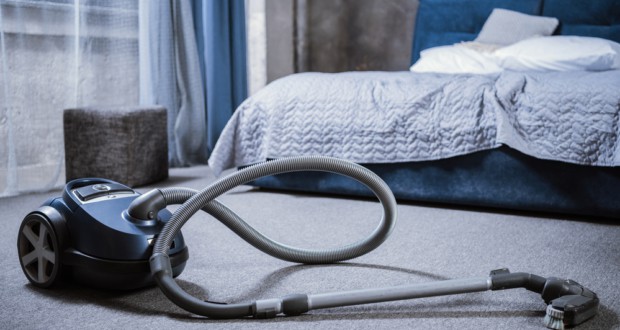You’ve heard of second-hand smoke. Perhaps you’ve been a smoker in the past, are trying to quit now, or you like to have a cigarette every now and then. That’s first-hand smoke.
Have you heard of third-hand smoke?
Third-hand smoke is that lingering smoke smell that can be found on anyone or anything after it has been exposed to the aftermath of a cigarette. Ever walk into a room and smell the pungent odor of smoke? Smelled it on someone’s clothing?
Kissed someone and had an ashy aftertaste?
These are all examples of third-hand smoke. The science of cigarette smoke and its smell goes beyond trying to purge it from your clothing or figuring out how to get the smoke smell out of your car.
Third-hand smoke can be just as dangerous as the other two types. That’s why knowing how to manage the aftermath of cigarette smoke is beneficial to everyone.
Why Does Cigarette Smoke Stick to Things?
The average cigarette contains several different chemicals and toxins in addition to the tobacco and nicotine that are included with the product. Even with efforts in place to reduce the toxicity of cigarettes, the average smoker exposes themselves to 250+ potential poisonous toxins with the cigarette smoke they produce.
Those toxins remain in the smoke that lingers in the air. When combined with the chemicals in the smoke, it creates a “coating” effect.
Have you ever walked outside in the fog and had your clothing feel damp? Although you couldn’t see the moisture, it was still there. If you stayed outdoors long enough, your clothing would be soaked. Each time you would walk outside, there would be another layer of moisture contributing to your overall feeling of dampness.
That is how cigarette smoke works and creates third-hand smoke. Every cigarette contributes another “layer” of toxins and chemicals that can stick to virtually any surface. That “stickiness factor” traps the smoke odor the cigarette produces at the same time.
Depending upon the space where the smoking occurs, the toxicity levels could be quite dramatic. In a vehicle, where space is at a premium, the highest concentrations smoke smell and toxin build-up tend to occur.
Leaving a room or opening a window doesn’t help like many think it does either. Cigarette smoke can stick to anything. That means your skin and your hair, as a smoker, can emit the same level of toxins that your clothing, your car, or your home are emitting right now.
You don’t need to breathe in the smoke of a cigarette to be exposed to what they leave behind.
Is Cigarette Smoke Dangerous?
The #1 risk factor for lung cancer is smoking cigarettes.
In the United States, up to 90% of lung cancer patients have a history of smoking. Using other tobacco products, including pipes, cigars, or chewing tobacco, increases this risk as well. Although just 1% of the chemicals in a cigarette are known to be carcinogens, that means about 70 known cancer-causing agents are in the cigarette smoke that coats a car, a home, and clothing.
That means there are about 7,000 chemicals in the average puff of cigarette smoke.
The list of dangerous agents in cigarette smoke includes ammonia, carbon monoxide, and hydrogen cyanide.
Knowing how to properly clean up in the aftermath of having a cigarette may not lower your risks, but it can reduce the environmental risks that others face. Walking into a room or sitting in a vehicle that smells like cigarette smoke is an indication that the environment is toxic.
For children, the exposure risks are incredibly high. Developing brains are more susceptible to low-level toxin exposure than adult brains. Children also tend to receive a higher level of third-hand exposure because they crawl on floors, touch contaminated surfaces, and put everything into their mouths at some point.
A child’s relatively small size compared to an adult increases their total exposure level as well, even if they are exposed to the same environment as an adult.
Imagine an infant who is teething. You hand them a teething ring that has been sitting on the counter while you’ve been smoking. The toxins from that smoke will be put directly into their body.
According to Scientific America, the exposure rate for infants is 20 times higher than the exposure rate of adults. Because there is such variation in the spaces we all inhabit, some may be exposed to even higher rates of cigarette smoke contamination.
By using the best products to remove smoke odor, you’re doing more than creating a home, vehicle, or physical item that smells better. You’re removing the chemicals and toxins that are present in that environment so that the third-hand exposure risk that others around you face is greatly reduced.
How Long Can the Smell of Cigarette Smoke Linger?
The amount of time that the odor from a cigarette can linger depends on the size of the room, how much ventilation the room receives, and the level of airflow exposure that occurs within that space.
Because the toxins and chemicals trap odor particles and then seep into the items that are in the room, certain objects can cause the odor to linger longer. Fabrics, upholstery, and carpets are the most susceptible to this process. The particles in the smoke become trapped within the fibers of the material, which then traps the odor of the cigarette.
The number of cigarettes that are smoked in a specific area will also contribute to the level of odor that is being experienced. Smoking one cigarette while driving, for example, is very different than smoking one pack a day in your car.
Air purifiers can be beneficial when removing immediate odors from cigarette smoke, but open windows or other forms of ventilation are not. You can choose ozone generators or air purification machines to work the smoke odor out, but ozone can also be an irritant that must be managed.
Although a well-ventilated room can remove the odor, it may not remove the third-hand exposure from the chemicals and toxins in the smoke that can coat exposed surfaces.
Could Smelling Cigarette Smoke Be the Sign of a Health Problem?
Although the odor of a cigarette can linger for quite some time, there may be times when some individuals smell cigarette smoke when it is not present in any form. When this occurs, it is referred to as smelling phantom cigarette smoke.
Phantom smells can be caused by a number of different health issues. The most common is a condition that is called parosmia.
The smell of cigarette smoke, when there is no odor present, can be an indication that a person’s olfactory nerve has been damaged in some way. It may be caused by a viral infection, a bacterial infection, chemical exposure, or a traumatic event. Tumors along the olfactory nerve or a brain tumor have been known to cause this issue as well.
Most people have this experience happen to them at least once. Allergies and irritants can cause inflammation within the nasal and sinus cavity and, for some, that can be enough to trick the brain into thinking that it is smelling cigarette smoke. Air that is dry and heated can trigger parosmia as well, which is why this occurs so frequently while driving in a vehicle.
If it happens for a fleeting moment and nothing more, then the chances are good that it is an anomaly and nothing more. If it happens frequently or lasts for lengthy periods of time, however, it is a condition that a medical provider should address.
How to Remove Cigarette Smells for Good
To remove the odor of cigarette smoke, the toxins and chemicals that are trapping the odor must be removed. Since every cigarette adds another layer to the room, vehicle, or materials that smell like smoke, it is necessary to remove every layer of contamination.
That is why the smell of cigarette smoke can sometimes seem worse before it gets better. As you remove layer after layer, the odor particles are released into the environment.
It is important that products are used to eliminate the chemicals and toxins that have coated the room or stuck to items when removing cigarette smells. Using items that mask the odors will not improve the environment on a permanent basis. Once the masking agent is removed, the odor will remain, and everyone in that room will have been exposed to the toxins and chemicals that were in the cigarette smoke.
Take a moment to review how you can minimize the impact of cigarette smoke.
You may also wish to take a look at how you can smoke inside without leaving third-hand smoke.
There are natural methods to remove cigarette smoke odors that you may wish to review as well.
Whether you’re a smoker who wants to actively manage their vehicle or home environment or you’ve purchased a home that smells like someone has smoked there daily for 40 years, knowing the science of cigarette smoke will help you to manage the situation more effectively.
Be safe out there.







Leave a Reply